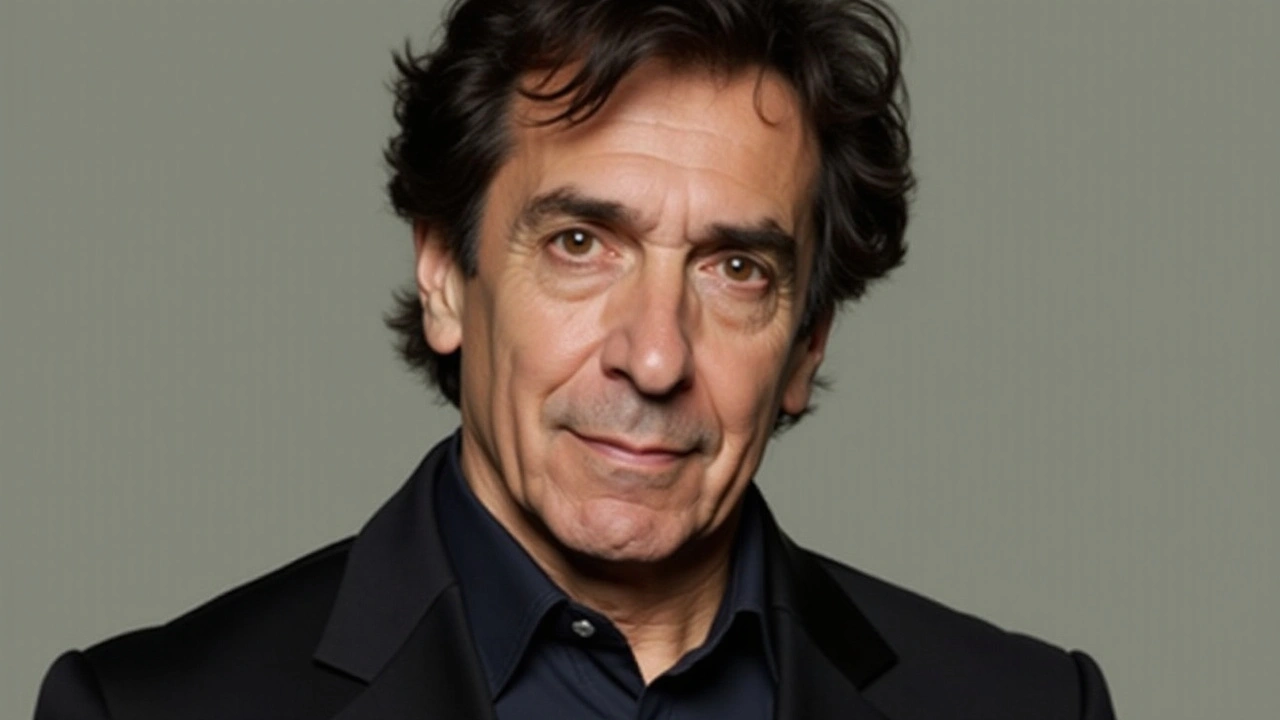Al Pacino's COVID-19 Battle: A Glimpse into Mortality
Al Pacino, the legendary actor whose performances have left an indelible mark on cinema, recently recounted a chilling and introspective encounter with his own mortality after contracting COVID-19. In an intimate interview with The New York Times, Pacino offered a detailed account of an event that would challenge his perceptions of life, death, and beyond. More than just another celebrity health scare, his story sheds light on the serious impacts this virus has had on individuals worldwide.
At 84, Pacino is recognized for his intense roles in classics such as 'The Godfather' trilogy, 'Scarface,' and 'Heat.' Yet, his portrayal of larger-than-life characters was far removed from the vulnerability he faced during his harrowing experience with COVID-19 in 2020. According to Pacino, his ordeal began with a feeling of extreme unwellness, characterized by debilitating fever and dehydration. The actor, well-aware of the potential gravity of his symptoms given the pandemic's conditions, enlisted a nurse to stay with him full-time.
The Moment of Crisis
What began as a precaution soon escalated into a critical medical emergency. The nurse, attentive to her patient's declining state, noticed the astonishing absence of a pulse. It was this alarming discovery that prompted Pacino's assistant, Michael Quinn, to initiate a frantic call for emergency services. The world outside was already in chaos due to COVID-19, and the response from medical personnel was swift yet meticulously performed under stringent safety measures.
The sight that awaited Pacino when he regained consciousness was as dramatic as any movie scene he had portrayed. Surrounded by six paramedics and two doctors, all clad in protective gear, the reality of his experience set in. These front-line workers, heroes in their own rights, managed to bring him back from the brink. Pacino reflected on this moment, describing it as a surreal and shocking realization that life was fragile and precarious.
Exploring the Afterlife: Pacino's Personal Reflections
In the aftermath of his revival, Pacino's thoughts gravitated towards the nebulous concept of the afterlife. Despite popular cultural depictions of a bright, welcoming light or a past-life review, Pacino's experience was starkly non-sensational. He described an absence—no memories, no visions, just nothingness. This candid admission challenges the mystique surrounding near-death experiences and offers a unique perspective that stands in contrast to the typical narratives often shared by others who have had similar brushes with death.
To articulate his uncertainty, Pacino drew upon his rich literary knowledge, referencing Shakespeare's iconic soliloquy, 'To be, or not to be,' from 'Hamlet.' This philosophical reflection on existence and mortality resonated with Pacino as he grappled with whether he had truly experienced death or simply a visceral dream of it. The event, whether it was death or a close simulation, altered his understanding and fear of dying, leaving him with a sense of calm acceptance.
Pacino's Literary Venture: 'Sonny Boy'
This profound encounter with COVID-19 forms just one chapter in Pacino's upcoming memoir, 'Sonny Boy.' Slated for release on October 15 in the UK, his book promises to dive deeper into personal stories and reflections amassed over decades of an illustrious career. Readers can expect to find a trove of heartfelt anecdotes, revealing insights, and perhaps an even deeper understanding of the man behind the roles. Pacino's near-death experience is positioned as a centerpiece, inviting readers to consider their own views on life and death.
The memoir is anticipated by fans and literary enthusiasts alike, offering an opportunity to connect with the revered actor on an individual level. For many, Pacino's vulnerability and willingness to disclose such intimate details serve as a reminder of the shared human experience. Through the eyes of one of Hollywood's giants, 'Sonny Boy' offers a genuine exploration of living, aging, and the inevitable question of what comes after.
Confronting Mortality in the Time of COVID-19
Al Pacino's story is more than just an individual's confrontation with COVID-19. It mirrors larger themes that resonate universally—the unpredictability of life's course, the fragility of health, and the human preoccupation with what lies beyond. These themes, especially in the context of a global pandemic, have forced countless people to face similar fears and reflections.
The pandemic has undoubtedly been a catalyst for widespread anxiety about health and mortality. Pacino's openness about his own vulnerabilities not only humanizes a public figure often seen as larger than life but also offers comfort. It reminds readers that even the most iconic individuals are not immune to the trials that life presents. His account initiates vital conversations about the inevitabilities we all must eventually encounter.
Facing the Future with Grace
For Al Pacino, this intimate memory of a brush with mortality has become a transformative experience. It shifted a lifelong fear into one of contemplation and acceptance. Drawing from his reflections, he now faces the future with a serene mindset, finding peace in the unknowable aspects of what comes after life. As 'Sonny Boy' promises to explore these personal revelations and bridge them with his illustrious past, readers will join Pacino on a journey not just through his life but also through their own assumptions and beliefs about living and dying.
